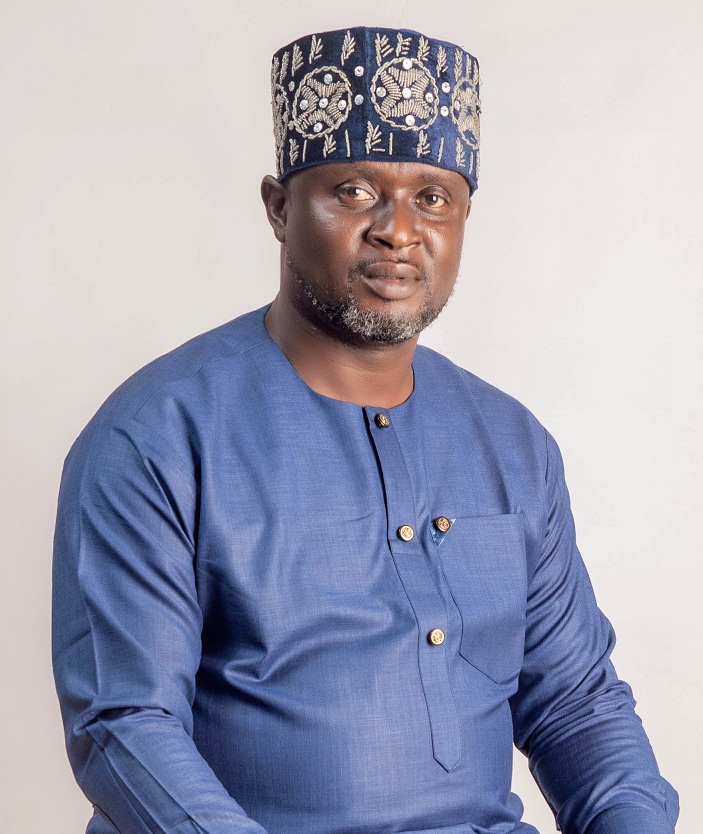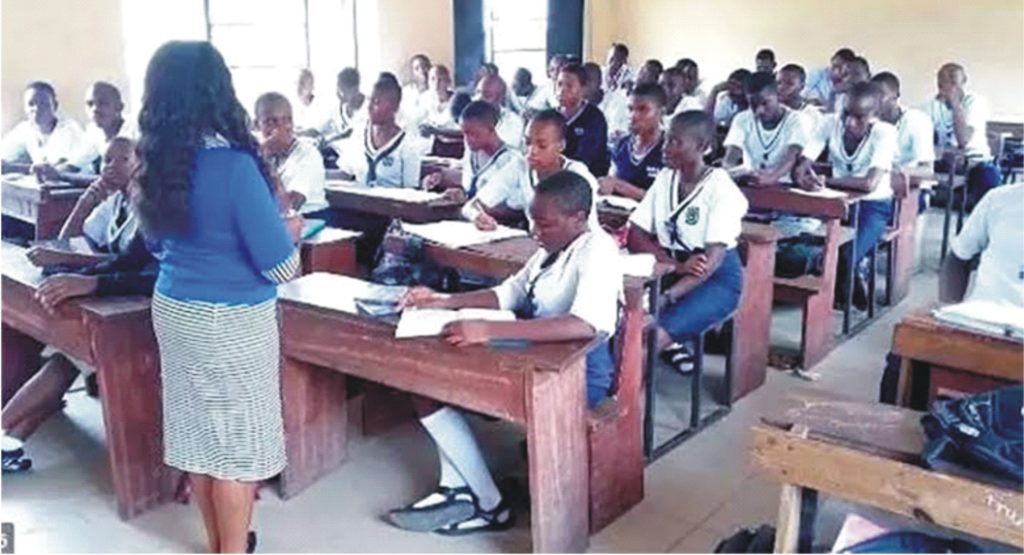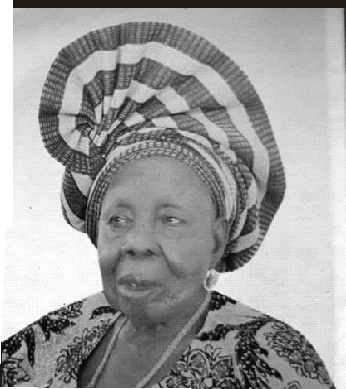Can suspect be prosecuted in absentia?
By Runsewe Solomon
|
Trial in absentia is a criminal proceeding in a court of law in which the person who is subject to it is not physically present at proceedings. In absentia is Latin for “in (the) absence”. Its meaning varies by jurisdiction and legal systems.
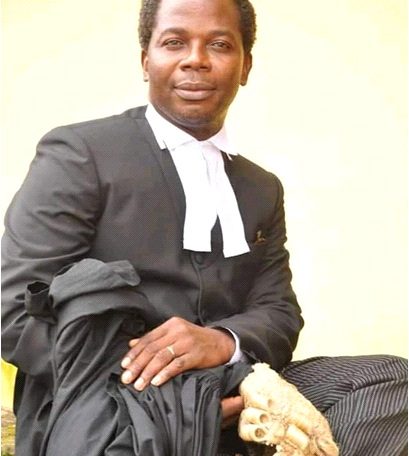
As a generally principle of Criminal law, every defendant is expected to be present in court during the whole of his trial. A defendant cannot be tried in absentia, it is not part of our criminal jurisprudence to try a defendant in absentia.
This general rule is to afford the defendant all opportunities at every point in time, to defend himself adequately. However, this cardinal principle of criminal administration is subject to some statutory exceptions.
The first exception is based on the common sense that a defendant who misconducts himself in such a way that his misconduct interrupts the “proceedings or otherwise as to render their continuance in his presence impracticable.
Secondly, whenever a Magistrate issues a summons in respect of any offence for which the penalty is a fine not exceeding N 15, 000 (fifteen thousand naira ) or imprisonment not exceeding six months or both such penalty and imprisonment, the Magistrate may, on the application of the defendant and if he sees reason to do so and shall, on such application when the offence with which the defendant is charged is punishable only by a penalty not exceeding fifteen thousand naira, dispense with the personal attendance of the defendant provided that the defendant pleads guilty in writing or appears and so pleads by a legal practitioner.
He court may declare that there is no need for personal attendance of the defendant provided that the defendant pleads guilty in writing or appears and so pleads by a legal practitioner. Even at that, the Court, at any subsequent stage of the proceedings, direct the personal attendance of the defendant and, if necessary, enforce such attendance by means of the issue of a warrant to apprehend the defendant and bring him before the court.
This is the principle of law codified in section 122 of Administration of Criminal Justice Law of Ondo State, 2015.
The third instance in which the suspect/ the defendant (commonly referred to as accused person) may be tried absently is where it is established that the course justice will be better served by the absence of the defendant, the court has reason to suspect the mental capacity or soundness of mind of a defendant, by virtue of which he is unable to stand trial or defend himself, the court shall order the medical examination of the defendant’s mental state or soundness of mind by an appropriate health institution.
And lastly, where the law that criminalized a particular action or inaction specifically provided that such offenders could be tried in absentia. These are the few exception to the law that provides that the defendant must always be in court before his trial Could be said to be lawful.
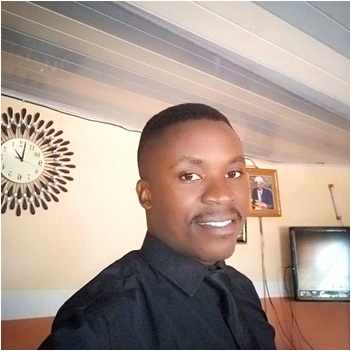
Trial in absentia is a criminal proceeding in a court of law in which the person who is subject to it is not physically present at those proceedings. In absentia is Latin for “in (the) absence”. Its meaning varies by jurisdiction and legal system.
In common law legal systems, the phrase is more than a spatial description. In these systems it suggests a recognition of a violation to a defendant’s right to be present in court proceedings in a criminal trial.[citation needed] Conviction in a trial in which a defendant is not present to answer the charges is held to be a violation of natural justice.[1] Specifically, it violates the second principle of natural justice, audi alteram partem (hear the other party).
In some civil law legal systems, such as that of Italy, absentia is a recognized and accepted defensive strategy. Such trials may require the presence of the defendant’s lawyer, depending on the country.
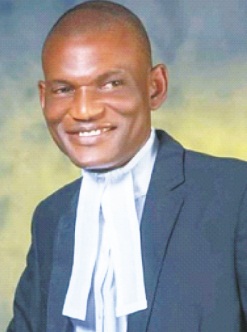
The court is not just a dumping ground where everything will just come in and out of the revered place. In any other place, there may be need for a representative but the court does not believe in that pattern. Anything said on behalf of the suspect may be seen or viewed as mere hearsay except the person is there when the offence was committed.
A suspect is anybody who is alleged or did anything that contravenes or contradicts the law. It is a person believed to have committed a crime or an offence- this is according to the Black’s Law Dictionary.
The general rule is that an accused must appear in court and must always be present in court during the pendency of his/ her trial. This rule has some exceptions; for instance, if the suspect is indisposed, he/ she may be excused in court with the evidence of medical report tendered, in case of being bereaved, etc. Where an accused fails to be in court, the Magistrate/ Judge may issue an arrest warrant.
It is proper for a suspect to always be in court at any point in time when his/ her matter will be coming up. The inability of a suspect who has been alleged of committing a crime is simply an indication to frustrate the case and to ensure that the suspect goes scot free.
Section 36 of the Constitution of the Federal Republic of Nigeria as amended talks about the right to fair hearing while the sub section 6 i.e. (36) (6) says: “Every person who is charged with a criminal offence shall be entitled to:
(c) defend himself in person or by legal practitioner of his own choice
(d) ………. And obtain the attendance and carry out the examination of witnesses to testify on his behalf in the court or tribunal on the same conditions as those applying to the witnesses called by the prosecutor:
The principle of fair hearing is so much germane that every accused person must be given ample time and opportunity to defend or prepare for his defence or employ the service of a legal practitioner, it becomes a breach of fundamental right if an individual is not given time to defend himself, therefore, it is mandatory, the suspect be physically available in court to witness the proceedings, those who are exempted are those public office holders according to section 308 of the constitution but this is for a limited period of time, after leaving office they can now be tried or prosecuted.
Criminal matters are not statute barred, there is no limit in which a person who has committed an offence can be tried, for as long as the person is still living, he can be tried any time for the offence or crime committed years back.
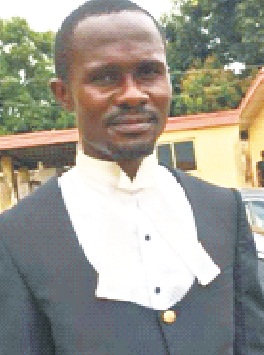
A trial in absentia is not a violation of the right to a fair trial and does not infringe the rights of the accused, but the accused should be appropriately defended and his counsel who wishes to attend the trial should be permitted to plead the case.
This means that, if after the court decision on the declaration of absence the defendant presents facts and evidence where it turns out that he was unable to appear, then consequently the interim decision on the declaration of absence may be declared void and invalid, and the trial develops from the beginning.
It is obviously a negation of fair trial. A trial of the accused person in his absence is a sham. In the instant case, the appellant was not tried with the 2nd accused who was said to have absconded.
The core objective of a criminal trial is to strive towards the attainment of justice and to ensure that the rule of law is maintained. The presence of the accused, in order to be submitted to trial, is indispensable to the foundation of any judicial system and is viewed to be in consonance with the principles of natural justice.
A trial provides an accused the opportunity to challenge the evidence against him and to present his account of the concerned incident. However, certain exceptional situations may demand that the court order the trial to proceed without the presence of the accused. Such a situation envisages what is referred to, in common parlance, as a trial in absentia.
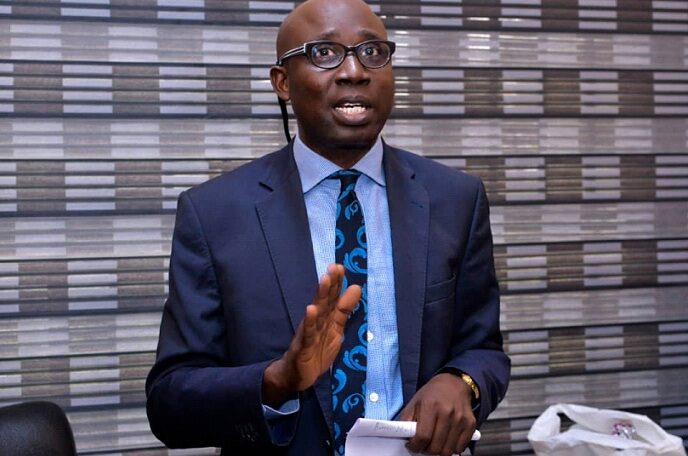
Trial in absentia is not new to our criminal justice system, especially our substantive laws. In fact Section 39 (1) of TELECOMMUNICATIONS AND POSTAL OFFENCES ACT [1995- LAWS OF THE FEDERATION] supports trial in absentia. The section provides that: “The absence from Nigeria of a person accused of an offence under this Act shall not prevent his being tried and convicted under this Act.” Similarly, section 27 of Decree 18 of 1994 made similar provisions as follows: “27(1).
The absence from Nigeria of a debtor or of a person who has committed an offence under this Decree shall not prevent his case being heard and determined or his being tried and convicted under this Decree. (2) An order of the Tribunal made pursuant to a hearing or trial under subsection (1) of this section shall, where expedient, be executed in the absence of the debtor or person convicted, but the commencement of a sentence of imprisonment shall be deferred until his return to Nigeria.”
The Supreme Court in UWAGBA V. FRN (2009) LPELR-SC.29/2007 pursuant to section 27 of Decree 18 of 1994, held in favour of the said section and stated that the appeal could be pursued to its logical conclusion by the court below even in the absence of the appellant from this country and he can be convicted.
All orders given by the court against the appellant could be executed in his absence except if it is a sentence of imprisonment which shall be deferred until his return to the country. That indeed is what the law prevailing provided.
The whole of Criminal Code Act, Penal Code Act, Criminal Procedure Code and Criminal Procedure Act, did not reveal any suggestion as to whether a defendant can be tried in his absence. It must be noted that the absurd provision also crept into the latest Administration of Criminal Justice Act, which came into force on 13th May 2015.
The said Act by Section 352(4) provides as follows: “Where the Court, in exercise of its discretion, has granted bail to the defendant the defendant in disregard for the court order, fails to surrender to the order of court or fails to attend court without reasonable explanation, the court shall continue with the trial in his absence and convict him unless the court sees reasons otherwise, provided that proceedings in the absence of the defendant shall take place after two adjournments or as the court may deem fit.”
 Trial in absentia is not novel to our administration of Criminal justice system, but it is odd. In our law, anybody reasonably suspected of having committed a criminal offence, must be brought before a court of competent jurisdiction to determine his guilt or otherwise, innocence. Hence, there’s no wrong without a remedy.
Trial in absentia is not novel to our administration of Criminal justice system, but it is odd. In our law, anybody reasonably suspected of having committed a criminal offence, must be brought before a court of competent jurisdiction to determine his guilt or otherwise, innocence. Hence, there’s no wrong without a remedy.
The law also recognizes the innocence of an accused person, until his guilt is established. That is why the courts sometimes grant bail to the accused person(s) if it deems it expedient, in the interest of justice. On ground that they will be made available by the surety to stand trial for the charge brought against them. Trial in absentia therefore arises when a suspect granted judicial bail absconds and thereby fails to appear in court on an appointed day for continuation of trial.
In this circumstance, the law empowers a judge to go on and try him even in his absence. Our concern however is on the legality or otherwise of this said provision especially when compared with the relevant provisions of the Constitution. This analysis therefore seeks to excavate the law in relation to trial in absentia in Nigeria in determining it’s lawfulness or illegality.
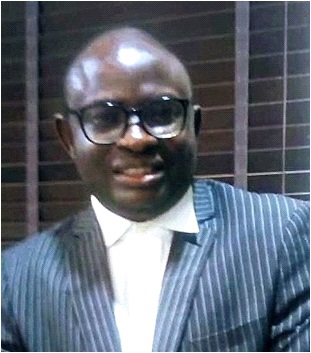
Trial in absentia explains a situation in criminal proceeding where trial goes on in absence of the defendant who is subject to be tried physically.
Just recently, the news filtered into the public domain that Justice Okon Abang of the Federal High Court, Abuja has ordered the trial in absentia of former Chairman of the defunct Pension Reformed Task Team, Abdulrasheed Maina, who is standing trial over allegations of fraud to the tune of two billion dollars.
He had earlier attended court on July 2, 2020, and failed to attend proceedings subsequently. The trial judge had adjudge him as having jumped bail in a ruling delivered on November 18, 2020. The judge on the same November 18 ruling, revoked the bail earlier granted him, ordered his arrest, and directed that his trial would proceed in his absence.
This is not however, the first time trial in absentia is being ordered by Nigerian judges. Recall that around November 20, 2018, Justice Ahmed Mohammed of the Abuja Division of the Federal High Court, held that it would go ahead with the trial of former National Security Adviser (NSA), Col. Sambo Dasuki (rtd), whether he was present in court or not. Dasuki, who was standing trial over allegations of illegal possession of firearms and money laundering in the unfettered arms deal of over $2bn had vowed not to submit himself for trial any longer, following the refusal of the prosecutor to obey court orders regarding his bail.
Similarly, sometimes around May 2018, the Federal High Court Abuja, presided over by Justice Okon Abang, ordered that the trial of former National Publicity Secretary of PDP, Olisa Metuh will be conducted in his absence because of his misconduct.
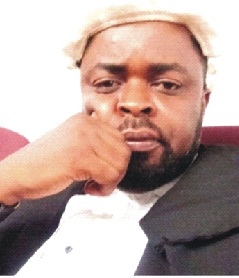
Our criminal justice system in Nigeria ascribes some measure of rights and privileges to a defendant standing trial before any court of justice. The most prominent of which appears to be the right to fair hearing. Being one of the pillars of natural justice as we all know, this right is inalienable, notwithstanding anything to the contrary.
By virtue of Section 36(4) of the Constitution, 1999 as amended, “whenever a person is charged with a criminal offence, he shall, unless the charge is withdrawn, be entitled to a fair trial in public within a reasonable time by a court or tribunal.” By extension, the principle of Audi Alteram Patem, a Latin maxim which loosely translates to mean that: ‘each party to a conflict shall be given an opportunity to be heard’, is an offshoot of the right to fair hearing.

The Nigerian judiciary have given sound judgements in vehement opposition to the concept of trial in absentia. As a result, the courts have long settled the fact that trial in absentia is a sham and novel to the administration of our criminal justice system.
A trial of the accused person in his absence is a sham.” It must also be noted that the 1999 Constitution of Nigeria is supreme, and shall prevail over any other law(s) which comes in conflict with it. Therefore, and any other law which is inconsistent with any of it’s provisions shall to the extent of it’s inconsistency, be null and void. See section 1(3) of the Constitution.
The major hardship occasioned by trial in absentia is that the defendant standing trial will not be heard before a criminal charge against him is determined. Even when our law recognize that both parties be heard thoroughly before the determination of a cause in which they are interested in. Similarly, the defendant will not also have the golden opportunity to cross-examine those prosecuting him or even take some objections whenever a frivolous evidence is sought to be tendered.
The only remedy at the conclusion of the cause is to appeal the conviction, if the defendant was thereafter convicted. But this is even riskier, given that the appeal court cannot take the place of the trial court who had the opportunity to witness the proceeding first hand, heard the witnesses testify and evidence adduced. We are however consoled by the fact that where a conviction is appealed, the court of appeal either quashes the conviction or send the matter to be tried de novo by another judge and where there are evidential issues, the court of Appeal may put itself in the position of the trial court and admit or evaluate the evidence or send it back to the trial court for retrial. In any of these remedies identified, the delay and waste of resources in getting justice will still be a hindrance to substantial justice.
We also humbly submit that given the myriad of travails trial in absentia is sure to occasion on a defendant, it cannot be said to be the best procedure in determining the guilt of an accused person. The courts must therefore find a way to navigate the problem posed by trial in absentia in order to avert injustice.
Trial in absentia, although entrenched in our substantive laws, is unlawful and the courts must warn itself of the dangers in ordering same. The courts must therefore respect the rights of any defendant standing trial before it. We are of the view that the security situation must be improved to enable security agencies compel the attendance of defendants to stand trial at any time. We align ourselves with the view of William Blackstone in stating that it is better that ten guilty persons escape than that one innocent suffer.


